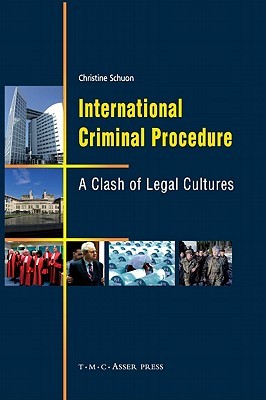
- We will send in 10–14 business days.
- Author: Christine Schuon
- Publisher: T.M.C. Asser Press
- Year: 2010
- Pages: 365
- ISBN-10: 9067043001
- ISBN-13: 9789067043007
- Format: 17 x 24.6 x 2.5 cm, hardcover
- Language: English
- SAVE -10% with code: EXTRA
Reviews
Description
4 an incorrect verdict. The basic concept of a criminal trial in common law s- tems is that of a competition between the parties, in which the stronger - and therefore true - version of the case will prevail. Civil law-style criminal proceedings, in contrast, are characterised by a "one case approach". Beginning at the pre-trial stage, only one case is prepared by a state official who carries out by far the major part of the investigations. This state official is either an investigating judge or (as for example in Germany) the prosecutor who, in contrast to a common law prosecutor, is also obliged to investigate exonerating evidence. The defence is granted a right to inspect the case files produced by this investigating authority. If the case proceeds to trial, these case files are transmitted to the trial court. At trial, the central figure is the judge who largely decides on the submission of evidence and questions the witnesses, and who decides over the defendant's guilt or innocence. Thus, only one case is presented at trial. In civil law systems, the judge is under a legal duty to establish the true facts of a case and to submit the appropriate evidence - cordingly. The central concept of a civil law-style criminal trial is that the true facts of a case are established by an official authority.
EXTRA 10 % discount with code: EXTRA
The promotion ends in 20d.18:57:12
The discount code is valid when purchasing from 10 €. Discounts do not stack.
- Author: Christine Schuon
- Publisher: T.M.C. Asser Press
- Year: 2010
- Pages: 365
- ISBN-10: 9067043001
- ISBN-13: 9789067043007
- Format: 17 x 24.6 x 2.5 cm, hardcover
- Language: English English
4 an incorrect verdict. The basic concept of a criminal trial in common law s- tems is that of a competition between the parties, in which the stronger - and therefore true - version of the case will prevail. Civil law-style criminal proceedings, in contrast, are characterised by a "one case approach". Beginning at the pre-trial stage, only one case is prepared by a state official who carries out by far the major part of the investigations. This state official is either an investigating judge or (as for example in Germany) the prosecutor who, in contrast to a common law prosecutor, is also obliged to investigate exonerating evidence. The defence is granted a right to inspect the case files produced by this investigating authority. If the case proceeds to trial, these case files are transmitted to the trial court. At trial, the central figure is the judge who largely decides on the submission of evidence and questions the witnesses, and who decides over the defendant's guilt or innocence. Thus, only one case is presented at trial. In civil law systems, the judge is under a legal duty to establish the true facts of a case and to submit the appropriate evidence - cordingly. The central concept of a civil law-style criminal trial is that the true facts of a case are established by an official authority.


Reviews